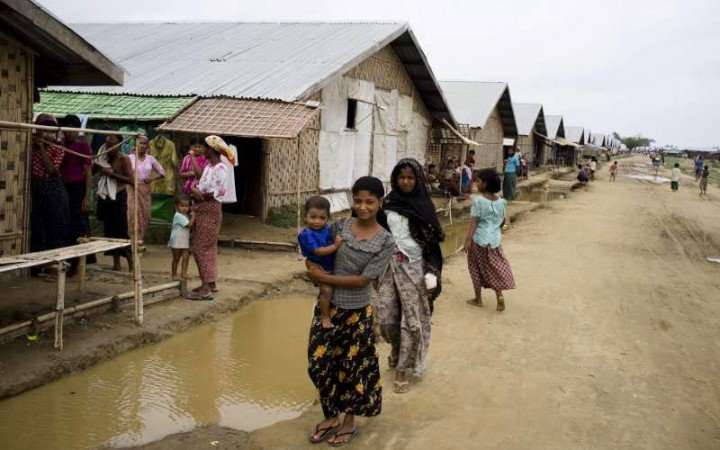In Sittwe, Myanmar, many displaced people have moved into temporary shelters, but are dependent on aid due to insecurity and restrictions on movement. Photo: UNHCR/S. Kellly
The UN has condemned the recent outbreak of violence between Buddhists and Rohingyas and appealed for measures to be taken to avoid further communal conflict in strife-torn Rakhine State in a statement released on Monday.

“The recent incidents show that urgent actions are needed,” said Eamon Murphy, the UN Resident and Humanitarian Coordinator in Myanmar. “We do not have the luxury of time and the present situation should not be allowed to continue,” he said.
The latest wave of violence in the state erupted when two Muslims were allegedly shot dead and six injured by police at the Kyein Ni Pyin camp for internally displaced people (IDPs) on June 27.
On Sunday evening, Mizzima reported that at least three Rohingya houses were burned down in the seaport city of Thandwe and several others were set alight. While no one was reported to have been injured, angry sword- and baton-wielding mobs were seen wandering and on motorbikes in the streets.
The Rakhine State government previously denied reports that security forces had killed three Rohingya women while protesting against being relocated at an IDP camp in Parein in early June.
The women were involved in a protest at the camp against being relocated to new shelters when police fired warning shots to disperse the crowd. Four others were injured in the incident.
“The death of the three Muslim women is still under investigation,” said Hla Thein, the chairman of the state’s Information Team at a press conference on June 6, referencing reports that the women had been stabbed and that the killings took place during an ensuing fight between villagers.
“It is important that preventive measures are taken as quickly as possible so the violence does not spread further,” said Murphy, who appealed for further relocations of IDPs to be based on “consultation and voluntariness”.
He also called for action to be taken by the government to build “broader confidence and trust” between the communities. This should start with “clear communication of the government’s vision and plans for the short and long term for all people in Rakhine State, particularly those currently displaced,” he said.
Up to 140,000 people have been displaced in the region since communal unrest began a little more than a year ago in violent clashes that left 200 dead.
The UN envoy Tomás Ojea Quintana previously stated that the conditions of the camps in Rakhine State were more like “prisons”.


